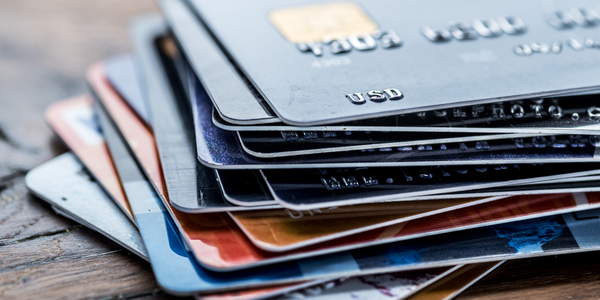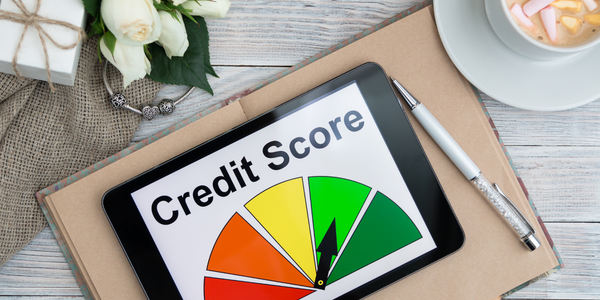In a previous article about loans, we touched on the different types of loans that are available to consumers, one of which included a personal line of credit and credit cards. In this article, we will dive deeper into the world of credit cards – the benefits that it could have to you, some key features and what key factors to look out for when using a credit card.
What Does A Credit Card Offer?
A credit card is simply a line of credit offered to you by the bank. The amount that you are allowed to borrow is dependent on the credit limit set for your card. You may charge expenses to your credit card which accumulates on your outstanding balance, essentially representing what you owe, which will then be eventually paid off at the end of the month.
As this is a form of short-term loan, any unpaid balance and subsequent transactions that are not paid off by the end of the month would then be charged a significantly high interest rate of approximately 25-29% per annum, depending on your arrangement with the bank. As such, they should not be used as a form of long-term credit.

Key Features To Look Out For
- Annual Fees – Most credit cards charge an annual subscription fee or membership fee which you pay for being able to use the card.
- Monthly statement – Similar to your monthly statement for your savings account, credit card statements are like a bill which totals all your credit card expenses for the month. Do keep track of your spending at the end of the month to ensure that you do not exceed your credit limit and that your expenditures are well within your financial capacity.
- Payment due date – This refers to the due date for payment of your credit card bill, after which, you may be subject to interest and late charges
- Free credit period – The free credit period is the period prior to the payment due date, where you will not incur any late charges and are free to clear your credit card bills
- Interest charge on unpaid balances – If you are unable to make a full payment of your credit card bill, interest will be charged on a daily basis on the balance that you owe, as well as any subsequent purchases until the settlement is received
- Minimum Sum – Even if you are unable to pay off the unpaid balances in full, a minimum sum is imposed. This usually represents 3-5% of the unpaid balances. The outstanding balance will be subject to interest charges on a daily basis. Failure to pay the minimum sum for 2 consecutive months may result in the inability to receive new unsecured credit facility. Late payments also negatively affect your credit score, which may affect your eligibility for loans of all types in the future.
- Rewards and points – A way that banks encourage consumers to use credit cards are through the accumulation of points and reward schemes. As such, some credit cards are more useful than others when it comes to accumulating airline miles, while others may offer a gift upon registration. Do keep in mind that there are several terms and conditions involved which may require the user to use the credit card for a stipulated period, or to transfer fresh funds into their account.
Applying For A Credit Card
A quick search will show the current credit cards that are giving out sign up bonuses. After filling out the application form, your credit card issuer or bank will assess your ability to service your credit card bills by assessing your income and credit report. This process is similar to applying for a loan.
While eligibility requirements differ across banks, they typically require a minimum annual income. As a benchmark, the lower your annual income, the lower your credit limit. While a credit card expands your spending capacity without requiring you to have money in the bank, you will eventually have to pay these outstanding bills. It is therefore important to spend within your means to avoid incurring additional penalties. Alternatively, a debit card limits your spending to the funds present in your bank account.
Despite the incentives that banks offer through points, air miles and gifts, it would be wise to avoid subscribing to too many credit cards. After all, the greater the perks, the higher the annual membership fees and with multiple cards, these fees can add up to be quite a substantial amount.

Other Costs Of Credit Cards
The cost of maintaining credit cards goes beyond your monthly bill and the annual fee. Misplacing your card may incur a replacement fee. A withdrawal fee may also be imposed if you wish to withdraw cash by drawing down from your credit limit.
Credit cards are intended for short-term credit, not long-term loans. As such, failure to repay these short-term loans may negatively impact your credit score as recorded by the credit bureaus.
Credit Bureaus
Singapore has two authorised credit bureaus: Credit Bureau (Singapore) and Experian Credit Bureau Singapore (ECBS). These credit bureaus are allowed to collect and store information regarding your credit history pertaining to loans, credit card applications and loan repayment history. Such information is recorded in a credit report and provided to banks and credit card issuing companies to provide an assessment of your ability to fulfil your loan obligations.
Credit Reports
A credit report is a record of all your credit payment history compiled across all banks. It includes your basic information, all credit checks, credit repayment history for the last 12 months, any bankruptcy records and default records. This is usually accessed after you apply for a loan and is used by the banks to determine your creditworthiness – the likelihood of you being able to make your monthly loan repayments in full.
Having a strong credit repayment history increases your eligibility for loans and credit cards down the road as you are less likely to pose as a credit risk to your loan provider.

You may contact any of the two credit bureaus to check your credit score. A multitude of factors go into calculating your credit score, here are a few best known factors:
- Credit you currently have – Number of accounts which have provided you with a credit facility
- Credit history – A long history of good credit history increases your reliability as a borrower who can repay their loans
- Enquiry activity – Frequent and multiple applications for loans or credit cards may indicate that you are actively trying to take on more debt
- Recent credit – Too many new credit facilities may increase your debt obligations and reduce your ability to fulfil all liabilities with additional credit
To maintain a healthy credit score, we recommend ensuring that all monthly credit payments are made in full prior to the payment due dates. Keeping your sources of credit to a minimum not only make it easier to keep track of, but also prevents you from unknowingly overextending expenditure.
Want to find the best mortgage rate in town? Check out our free comparison service to learn more!
Read more of our posts below!

